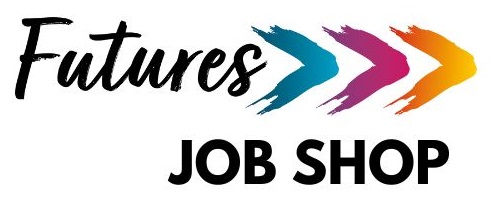We can help you to explore your study options at college and if this would be the right choice for you.
We can support you to find out more about the different subjects and qualifications that we offer, and how they link your career ideas. We also have our Next Steps Resources to help you.
FAQ
-
What are vocational courses?
Vocational courses have a mixture of practical and theory learning about a specific industry and will involve work experience where possible.
This means that you will have a mixture of practical and theory learning about a specific industry and will involve work experience.
In the same way there are different exam boards for GCSE’s, there are also other exam boards that offer vocational courses such as UAL, OCR Cambridge Technical and City & Guilds.
-
What do the different levels mean?
BTECs have different levels from Entry Level up to Level 5 and can take a different amount of time to complete.
Level 1 – a one-year course, an introduction to working in a particular vocational area.
Level 2 - a one-year course, similar standard to 4 GCSE’s.
Level 3 – a one or two-year course, similar standard to A-Levels.
Level 3 Extended Diplomas are the equivalent of 3 A-Levels and take 2 years to complete.

-
Which level should I start at?
The different levels and courses have specific entry requirements so please read these carefully and apply for the level which best suits your predicted grades.
-
Will I have to sit an exam if I do a vocational course?
You will be assessed regularly by completing different units as part of each course.
You will have coursework to do to show what you have learned.
There will be a variety of practical tests as you go along, for example, you could be putting on a dance performance, presenting a business plan or coaching a sport session.
You may complete some tasks individually or as a team.
Some courses also have written tests, similar to exams.
To find out more about each of our courses, look at our website and come to our open events.
-
Will I have to find my own placement?
Although we have a team of work placement officers who will help you find and set up a work placement we would recommend that you think about who or where you would like to gain experience and strongly encourage you to approach local companies for opportunities.
For more information, visit our Work and Industry Placements page.
-
What is the difference between vocational Level 3 qualification and A Levels?
A vocational Level 3 qualification is more focussed on a particular area, you will only study ONE subject. It is more hands- on and you will be working hard continuously through the whole course.
A Levels allow you to learn about subject based topics and theories and you can choose to study 3 subjects at most sixth form colleges. They are assessed differently with exams at the end of the two years.
-
How can I decide which course is best for me?
Research the options available to you to find out more.
Think about the following questions:
- What will your predicted grades allow you to apply for?
- Think about which type of assessment you do well in- are you better at coursework and practical assessments? Do you perform well in exams?
- Are you ready to specialise on one subject or would you like to study several?
- Do you have a particular career aim? If so, what are the entry requirements for this?
If you are unsure and would like to discuss your options, please email your questions to us, or book an appointment to speak with one of our careers advisors.
-
Can I still go to university if I study at college?
Yes if you are completing a Level 3 programme over two years (dependent on the course) most universities will accept your application.
Some universities use the UCAS tariff points system but not all do and it is best to check the entry requirements at each individual university.
-
How can I find out more about T Levels?
For more information on T Levels available at West Suffolk College, visit our dedicated T Level page, where you'll be able to easily access links to apply for our T Levels.




Follow Us
Stay up-to-date on the latest news & events